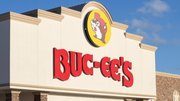Article
What will bookstores look like in five years?
The proliferation of e-readers is fundamentally changing the value proposition of bookselling.

August 31, 2010 by James Bickers — Editor, Networld Alliance
The price war of attrition in the burgeoning e-reader market is putting more and more electronic ink devices in the hands of consumers. Research firm Digitimes reported 1Q 2010 sales of e-readers at 1.43 million units. Back-and-forth price cutting by two of the leading device providers, Amazon (the Kindle) and Barnes & Noble (the Nook), took the industry to what Amazon calls the "tipping point" last month — sales of books delivered electronically outpaced hardcover sales by nearly two-to-one.
All of this leads to questions and concern for the future of one of retail's most venerable institutions, the bookstore. It's a segment that has already changed much in the past two decades, morphing from stacks of books on shelves to entertainment destinations that are as much about the coffee as anything else, and it looks like the coming years might bring the biggest changes it has ever seen.
The bookstore of the future
So, with so much ink becoming electronic and so many pages delivered wirelessly, what role will the bookstore play, say, five years from now?
"I think that the megastore as we know it today will disappear from many towns and those that remain will be only in large urban centers," said Richard Day, publisher of Self-Councel press, which has published DIY legal books since 1971. "My expectation is that bookstores will revert to what they once were: smaller, neighborhood stores concentrating on selling print and digital to an audience with common genre interests. The stores may be book/coffee/tea shop hybrids, with a while-you-wait book printing facility, digital connections to facilitate e-book browsing and purchase, and staff who know and love the books they sell."
Maryelizabeth Hart knows all about common genre interests. Her San Diego bookstore, Mysterious Galaxy, focuses its efforts on mystery, suspense, sci-fi, fantasy and horror. She believes that as instant electronic delivery of content becomes more pervasive, bookstores will become more about local focus and topical passion.
"I think there will be an emphasis on the community each store offers, and their community area will be a focus, whatever their inventory combination of traditional books, Espresso machines (a print-on-demand device that can create a book in a few minutes) and electronic books. I think the other area of emphasis will be our booksellers and their information. Regardless of format, readers look to booksellers as guides among the vast quantity of available reading material out there."
"To survive, I think brick-and-mortar bookshops need to become, more than ever, hubs for community and arts," said Claude Lalumiere, former bookseller and author of "Objects of Worship." "Expert knowledge is what a good bookseller supplies. Readers will go to bookshops only if they supply something that can't be replicated online: genuine, live interaction, and a physical and cultural context to explore and express your passions."
Who benefits from e-books?
Without question, e-books are convenient for consumers who are willing to get their content on a screen rather than the printed page. But what remains to be seen is the impact they will have on the rest of the publishing process — the retailers, publishing houses, and the authors themselves.
"The jury's still out on this one," said Alexandra Machinist, agent with the Linda Chester Literary Agency, which counts best-sellers Wally Lamb, Jennifer Weiner and Thich Nhat Hanh among its clients. "At the moment, anything that gets readers to buy more books is a good deal for writers. I'm of the opinion that e-books provide a vast landscape of impulse purchasing and middle-of-the-night, next-in-series buys that don't exist with traditional paper books."
Greg McFarlane, author of "Control Your Cash: Making Money Make Sense," loves the checks his e-book sales are netting him.
"For writers, [e-books are] amazing," he said. "I enjoy 70 percent royalties."
Publishing houses will eventually benefit from the e-book phenomenon, with some significant bumps in the road. In December, best-selling author Stephen Covey took away e-book rights for two of his biggest sellers from his publisher, awarding them to a smaller digital house that deals exclusively with Amazon. His company, Franklin Covey, has self-published a number of titles electronically, cutting Simon & Schuster completely out of the revenue loop.
But one theory is that authors will soon find that they cannot live without publishers for long, for reasons other than distribution and marketing.
"The greatest value of the traditional publishing system is its ability to take works through an editorial process," said Hart. "At the end of the day, it's the ability of the people to apply subjective values to the written word that cannot be replaced by an algorithm or sheer determination and marketing. The role of traditional publishers will remain, although with adaptations, regardless of format."
Undoubtedly, the party with the most to lose from this phenomenon is the book retailer. And the consensus opinion appears to be that a renewed focus on making the in-store experience truly special is the only way this story will have a happy ending.
"None of these [electronic] options for buying a book can replace the bookstore experience," said Melanie Tighe, owner of Dog-Eared Pages in Phoenix, Arizona. "The hours that can be wasted browsing shelves. The feel of the book in your hand as you flip it over to peruse the back cover. The spontaneous meeting of like minds reaching for the same shelf. I think bookstores will survive, but as an endangered species, a species that needs to be cared for by the community."
(Photo by brewbooks.)
 ChatGPT
ChatGPT Grok
Grok Perplexity
Perplexity Claude
Claude





